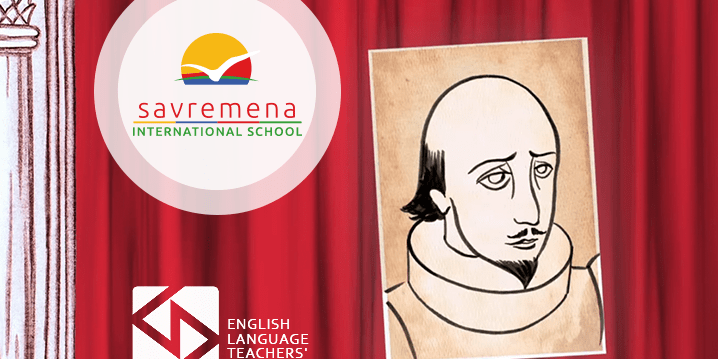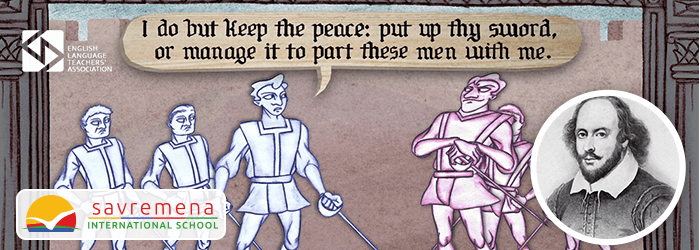The teachers at Savremena International School continuously strive to improve the quality of their teaching and find innovative ways to impart knowledge to their students in the easiest and most interesting way possible.
In order to help her students understand how to use euphemisms, their role in communication and know how to read between the lines, English teacher Tamara Koranjić designed a truly unique English language class which was named the best class on the creative opus of William Shakespeare in February 2016. It will also be a contender in the competition to be held in May for the main prize.
The best English language class at Savremena International School
The award-winning class successfully combined the works of one of the greatest writers of all time, euphemisms and their application in Shakespeare’s works as well as in that of the students themselves in an interesting and easily digestible way.
The English Language Teachers’ Association (ELTA) recognised the idea behind this class as one of the most creative submissions in the competition marking the 400th anniversary of Shakespeare’s death. The competition unites English teachers across the world and it enables them to exchange their ideas with the aim of finding the best teaching methods.
A modern approach to euphemisms
One of the defining characteristics of Shakespeare’s works is his reliance on euphemisms whose meanings can only be derived from careful consideration and reading between the lines. That is why, in their English class, students learn how to recognise euphemisms, as they practice decoding implications and text interpretation along with enriching their writing skills through the use of figures of speech.
Students also have the opportunity to watch video that explain writing techniques which employ euphemisms. That way the can explore the different contexts in which euphemisms occur as well as the ways of integrating them into a literary work.
Communication skills in English
By deciphering euphemisms and discovering their hidden meanings, students learn a lot about the specific culture and tradition they are used in. Linguistic devices like euphemisms, among others, bare the majority of the comedic effect in communication and they are essential if we want to understand sarcasm and irony.
By acquiring such communication skills, students will have no trouble holding their own with native speakers of English and easily interpreting and acquiring the materials that are too complex for less experienced speakers.





